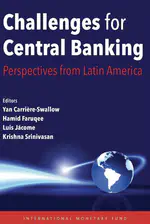Welcome! I am a PhD Candidate in Economics at the University of Western Ontario. My research focuses on macroeconomics with heterogeneous agents and monetary policy.
I will be on the 2022/2023 job market.
Download my CV .
Interests
- Macroeconomics.
- Monetary Economics
Education
PhD in Economics, Expected 2023
University of Western Ontario (UWO)
MA in Economic Theory
Instituto Tecnológico Autónomo de México (ITAM)
BA in Economics
Instituto Tecnológico Autónomo de México (ITAM)
Working Papers
In Progress
- Money Demand during COVID-19
- Consumption in College vs. Post-College, joint with Lance Lochner
